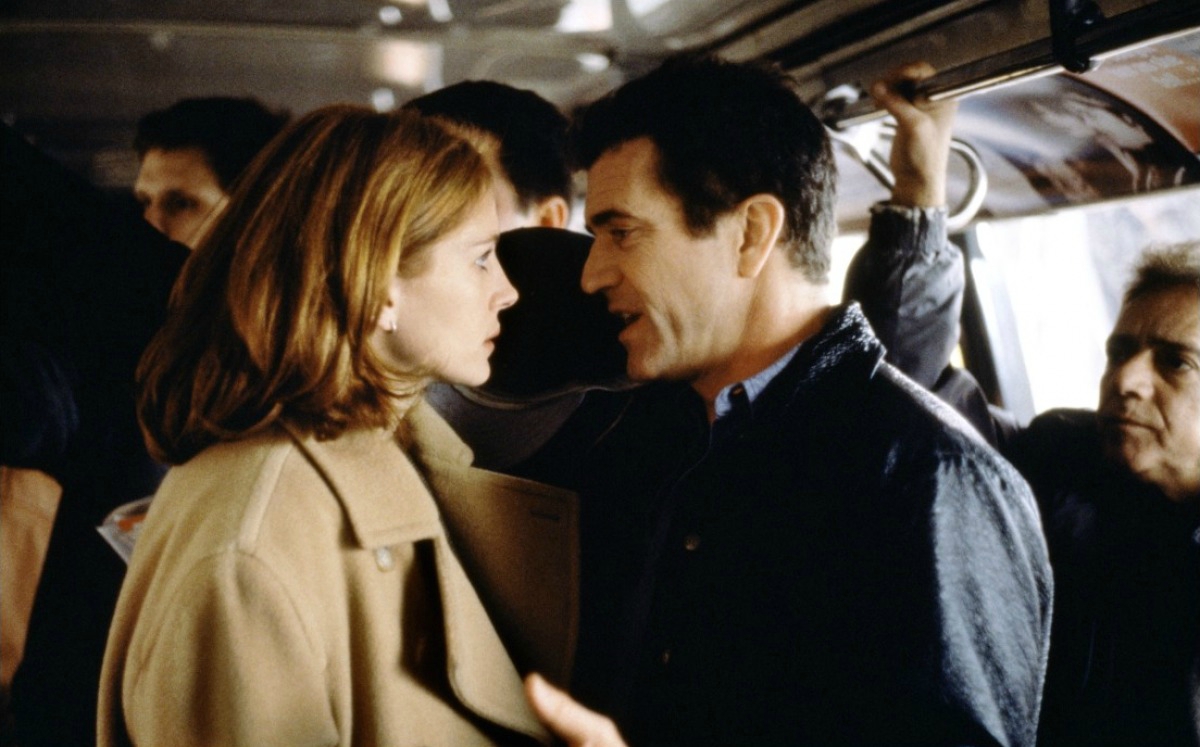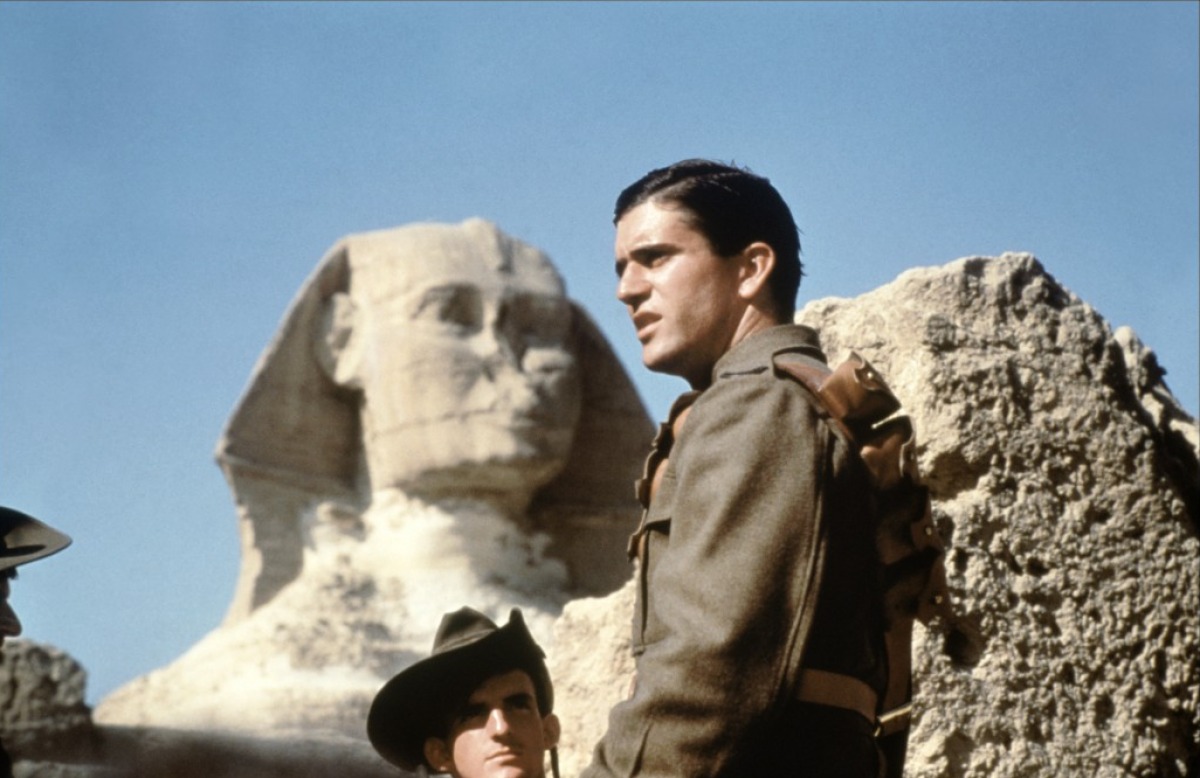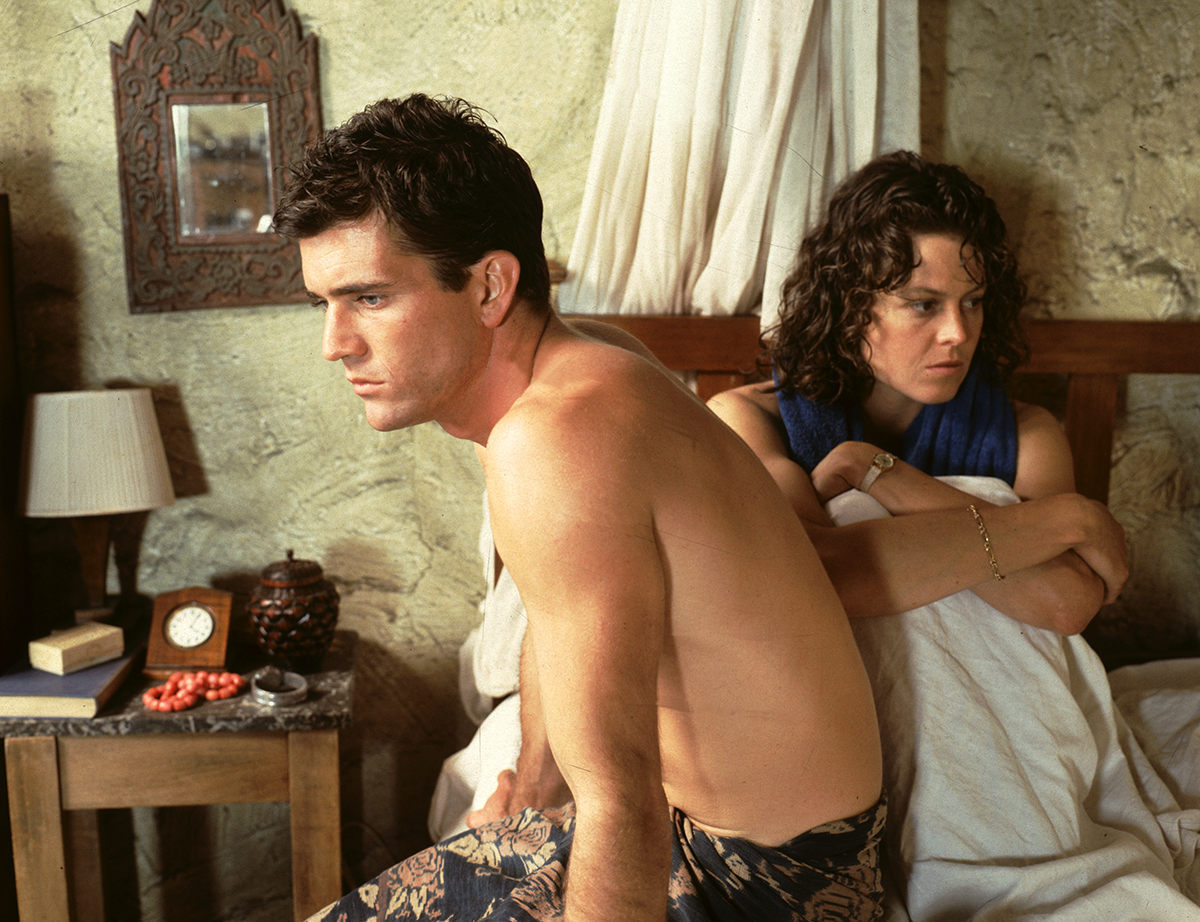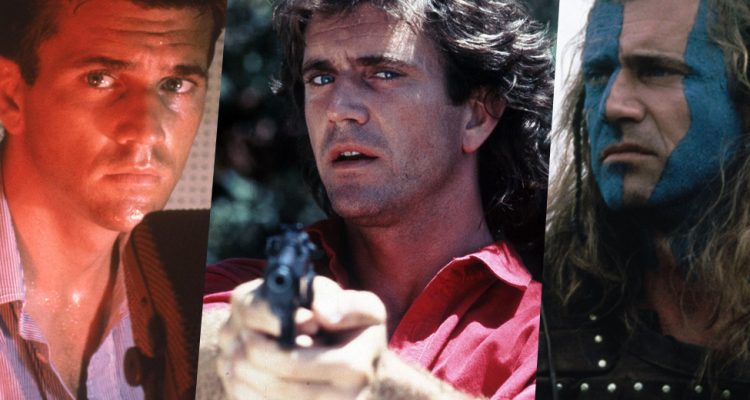This week sees the release of “Hacksaw Ridge,” a World War II movie starring Andrew Garfield as Desmond T. Doss, a deeply religious conscientious objector who saved the lives of as many as 75 of his colleagues at the Battle of Okinawa without ever holding a weapon, and was awarded the Medal of Honor. On the whole, it’s been very well-reviewed (though our review had more than a few issues with it), and could well figure into the awards season. And it might end up doing something that at times has seemed unthinkable: see the return of its director, Mel Gibson, from the cold.
In the 1980s and 1990s, Gibson was one of the biggest movie stars in the world, a charming rogue who could vacillate between startling violence and more crowd-pleasing fare, and who became a brand almost unto himself. He became just as well-regarded a director with his second feature, period epic “Braveheart,” becoming a box-office sensation and a Best Picture winner, while follow-up “The Passion Of The Christ,” a film that was the most explicit invocation of Gibson’s strong Catholic faith, proved controversial but enormously successful (until this year, it was the biggest R-rated movie ever).
READ MORE: Mel Gibson’s Viscerally Affecting But Ethically Worrisome ‘Hacksaw Ridge’ [Venice Review]
But around the time of the release of his fourth movie as a director, 2006’s “Apocalypto,” Gibson was arrested for drunk driving, with tapes of him making anti-Semitic statements to the arresting officer leaked. And four years later, the star pled no contest to misdemeanor battery on the mother of his daughter, accompanied by a tape with him threatening her and, among other awful statements, using the n-word. It seemed like he might be done for good, and for the next six years, his only notable roles were as villains in D-movie sequels like “The Expendables 3” and “Machete Kills.”
But with well-received actioner “Blood Father” playing Cannes (if not lighting up the box office), “Hacksaw Ridge” winning strong reviews, and Gibson starring with Sean Penn in the currently filming “The Professor And The Madman,” the comeback appears to be sticking. And it engenders complicated feelings. Gibson is a person who’s done and said abominable things, but is also someone who’s been wracked by the demons of depression and alcoholism. He’s alienated many, but maintains the loyalty of people like Robert Downey Jr., Jodie Foster and Danny Glover.
None of this is to defend his actions — being a mean drunk is one thing, being a mean drunk who does the things he’s done is quite another. As Jessica Kiang wrote earlier in the year, the separation of art and artist is a complex thing, one that will differ for each person. And while Gibson as an artist can often be abhorrent, to dismiss the art entirely feels like a mistake. Below, we’ve picked out 10 of our favorite Gibson performances as an actor, a task that reminds us that, for all the shittiness, there’s an enormously talented performer underneath. Let us know your thoughts on Gibson and his performances in the comments.
 10. “Braveheart” (1995)
10. “Braveheart” (1995)
Even more so than his characters in “Mad Max” and “Lethal Weapon,” William Wallace in “Braveheart” might be Gibson’s most iconic role — that famous image of his blue-and-white-striped face will be, with his tumultuous personal life, his major legacy. It’s decidedly not his greatest performance, but it’s a sturdy one in a well-made film that showcases much of what makes him a memorable performer. His second film as director (winning him Best Picture and Best Director at the Oscars, though still no Oscar nomination), it tells the story of Wallace, a 13th-century Scotsman pushed too far when the dastardly English execute his wife (Catherine McCormack), causing him to front a rebellion that leads to both martyrdom and freedom. Randall Wallace’s script is, frankly, sort of ludicrous, with its borderline satanic English king (Patrick McGoohan) and Wallace’s affair with Isabelle, the wife of the heir to the English throne; and the film hits a bunch of Gibson’s fetishes pretty hard, including Wallace’s grisly demise. But there’s a rousing, sweeping quality to the film, too, with some stunning battle scenes, and Gibson’s turn, which enables him to be both the romantic charmer and the man of almost startling violence, does so much to carry the movie through its rougher patches, despite the wonky accent.

9. “Conspiracy Theory” (1997)
We’re not saying that “Conspiracy Theory” is a good movie. It’s a pretty awful one, in fact. But whatever pleasures there are to take from it come from Gibson’s performance. The premise of the script — by Brian Helgeland, who won an Oscar the same year for his “L.A. Confidential” screenplay — is a pretty irresistible one. Gibson plays a cab driver, with a stalkerish fixation on a Justice Department lawyer (Julia Roberts), who writes a newsletter detailing various far-out conspiracy theories. But just because he’s paranoid, as the tagline said, it doesn’t mean they’re not out to get you, and he’s being menaced by a sinister doctor (Patrick Stewart, giving good villain) who seems to suggest that one of his conspiracies actually hit on the truth. In theory, it hit at the perfect time, with Gibson and Roberts at the peak of their stardom, and “The X-Files” having helped popularize the subject matter. But it’s indulgent and often misjudged, and Richard Donner feels like entirely the wrong person to make it, undecided as to whether it’s a “Parallax View”-ish paranoid thriller or a crowd-pleasing action-comedy in the mold of the later “Lethal Weapon” movies. As much of a mess as it is, though, Gibson gives one of his best turns amidst it: twitchy and desperate, clutching to the fraying corners of his sanity, and giving his character real pathos. If only the rest of it was as good as he is.
 8. “Hamlet” (1990)
8. “Hamlet” (1990)
The idea of action star Mel Gibson playing the most sought-after role for any actor, and for the great Franco Zeffirelli, no less, felt like a bit of a joke (indeed, three years later, “Last Action Hero” would riff on this, with Arnold Schwarzenegger playing the Danish prince in the film). But it works rather better than you’d think, and is underrated both as a movie and as a Gibson performance. Zeffirelli (who made a definitive “Romeo & Juliet” earlier in his career) isn’t really messing around with the play: It’s a straightforward, unfussy medieval take on Shakespeare’s drama. But that’s not to say that it’s uncinematic, with an earthy, almost tactile feel, a relatively zippy 130-minute runtime (almost half of Kenneth Branagh’s more self-important take six years later), and a lean focus on its dramatic spine. And though he’s perhaps the odd man out among a starry cast of ringers — Glenn Close (just nine years older than Gibson but playing his mother), Alan Bates, Paul Scofield, Ian Holm, Helena Bonham Carter, Stephen Dillane, Pete Poselthwaite — Gibson does a fine job with a deft, lively, intense performance that’s frequently capable of surprising. Perhaps there are Shakespeares he’s be better suited to — “Macbeth” springs to mind — but he’s really very good here.
 7. “Gallipoli” (1981)
7. “Gallipoli” (1981)
If it was “Mad Max” that established Mel Gibson as a movie star (at least at home), it was “Gallipoli” that proved his chops as an actor. The biggest film up to that point for Australian director Peter Weir (whose feature debut “The Cars That Ate Paris” had been a forerunner of “Mad Max”), it’s a World War I story about two young athletes, the idealistic Archy (Mark Lee) and the cynical, unemployed Frank (Gibson), who decide to enlist in the armed forces in 1915 as part of the ANZAC forces (Australian and New Zealand Army Corps) to fight in Turkey in the (historically eventually disastrous) campaign of the title. World War I was a conflict of, as famously said at the time, “lions led by donkeys,” with the best and brightest gunned down in the hundreds of thousands following orders by incompetent and out-of-time generals, and few movies have captured that better than Weir here, the slaughter feeling as senseless as anything in “All Quiet On The Western Front” or “Paths Of Glory,” even as it makes a case that the conflict was Australia’s making in some respects. And Gibson is the easy standout, his cynicism and charisma not overshadowing a palpable vulnerability, and his friendship with Archy feeling deeply earned. The ending, as Frank runs for his life but still can’t save his pal, is utterly devastating.
 6. “The Year Of Living Dangerously” (1982)
6. “The Year Of Living Dangerously” (1982)
A year on from “Gallipoli,” which was a colossal hit at home, Gibson and Weir re-teamed for another war film of a sort, a much bigger and more international affair that reinforced their international reputation. Based on Christopher J. Koch’s novel of the same name, it stars Gibson as Guy Hamilton, a rookie foreign correspondent who arrives in Jakarta in 1965, befriending the Chinese-Australian Billy Kwan (Linda Hunt, who won an Oscar for playing a male role), and falling for British embassy worker Jill (Sigourney Weaver), before the tumultuous times, which sees the despotic government, the Communist Party and the conservative military jostling for power. It’s a faintly Graham Greene-ish tale, one that Weir handles with the muscularity and clarity that characterizes so much of his work. It’s dated in some respects — Hunt is great, but her race-bending casting would spark a bajillion thinkpieces today; and there’s a slight Anglo-centric what-I-did-on-my-gap-year feel — but Gibson’s one of the reasons that it still holds up today, both displaying proper leading-man chops and capturing the moral murkiness of the character. It’s a film sometimes overlooked in the careers of both its star and director, but it’s a crucial turning point for both.

